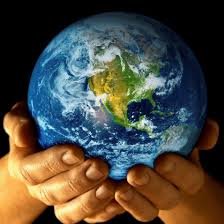
How to live a crisis and the stable plateau
Edgar Morin and Patrick Viveret wrote in 2010 “How to live in times of crisis”  (Portuguese edition of 2013), and they certainly were not considered a pandemic, but they are already being seen as a potential horizon for humanity, and that horizon has certainly been aggravated .
(Portuguese edition of 2013), and they certainly were not considered a pandemic, but they are already being seen as a potential horizon for humanity, and that horizon has certainly been aggravated .
Thus, philosophers and other types of visionaries who try to have a peaceful future have no foundation, or may even have, but based on philosophies and thoughts already overcome, a pandemic that demands even more from the great strategists and humanitarian thinkers.
On page 37 of the book it shows the symptoms of the crisis: “Wall Street knows only two feelings, euphoria and panic”, even without knowing it is what they think or promise “happiness”, but it is false and it follows depression, once analyzed more sensible can prepare for the next challenge.
The stable plateau has arrived, in terms of deaths, because the infection data are inaccurate, shows these peaks, now it is moving towards a stable plateau not only in Brazil, but in the world as a whole, it is because the infection cycle has reached the whole world, and in Brazil an entire country.
The cycle can be perceived as not as isolated poles of infection, even countries without new cycles that can be affected, but note that New Zealand and Taiwan are islands, so isolated by sea, they are more controllable, but trade can also reduce these countries.
Edgar Morin and his collaborator published in the book “Three mutations” important in the crisis and which are valid for a social situation of the pandemic, as they represent the ancient world, the world “nation states, industrial society, a segmented organization (see conflicts in the USA x China)… or the ecological challenge poses a question about what we are going to do with our planet ”(p. 57).
An industrial revolution put life in a frenetic way of life, “a classic industrial society that organizes itself in the classic sesame that you make of your life?”, And that remains a question that questions everyone, or recently launched in Portuguese “You have to change your life” by Peter Sloterdijk puts this around anthropotechnics, bringing to the debate a technical question.
MORIN, E.; VIVERET, P. Como viver em tempo de crise? (How to live in times of crisis?) Tradução: Clóvis Marques. Rio de Janeiro: Bertrand do Brasil, 2013.









